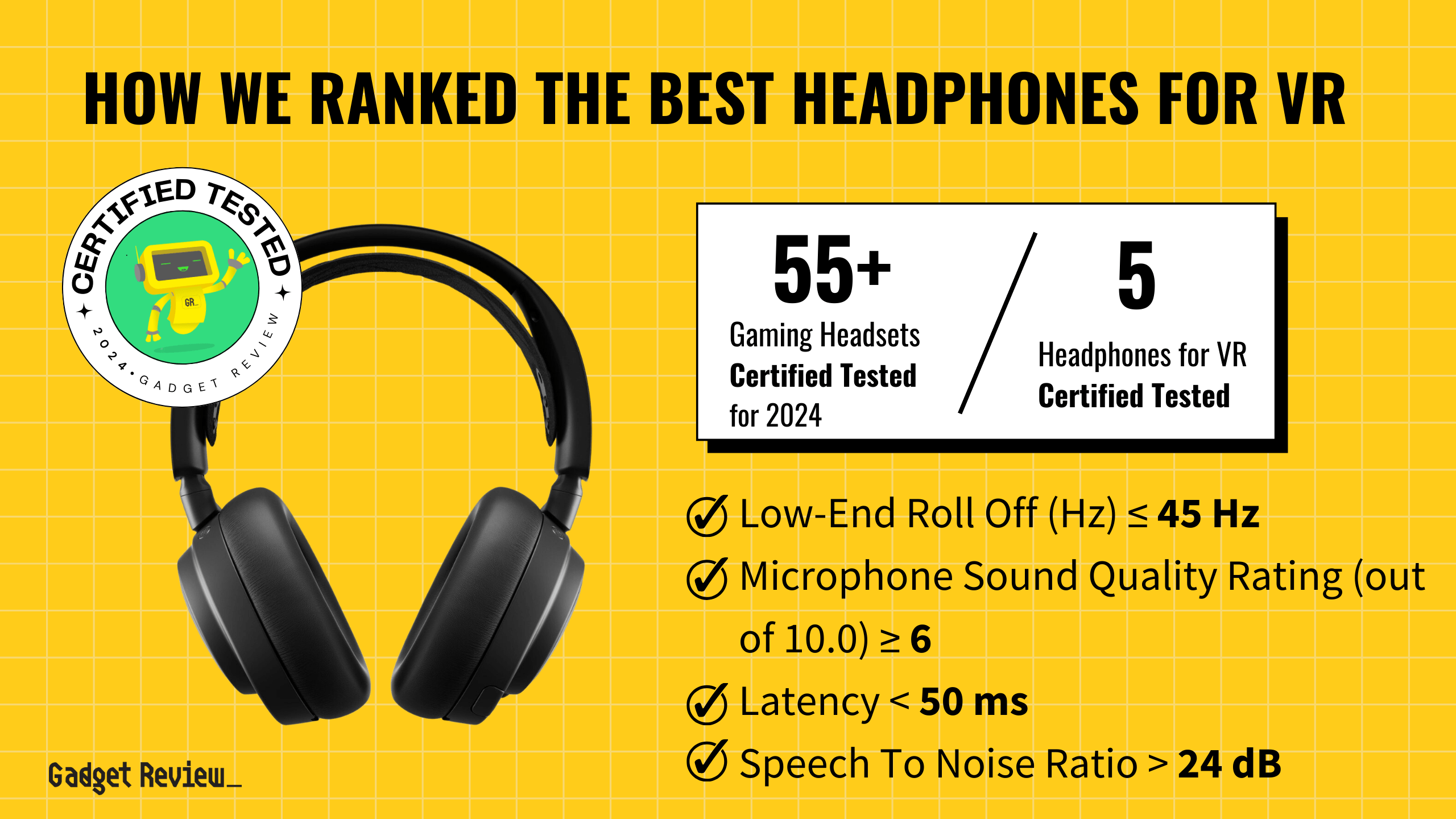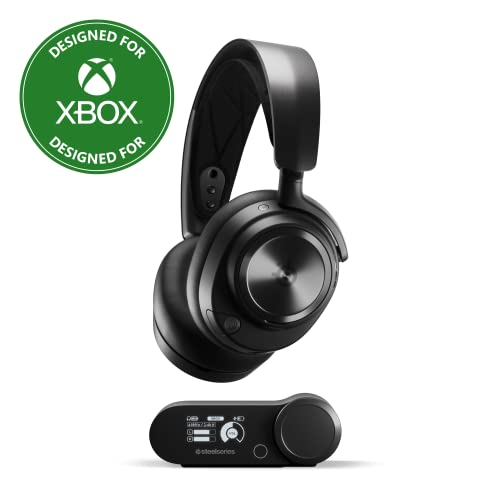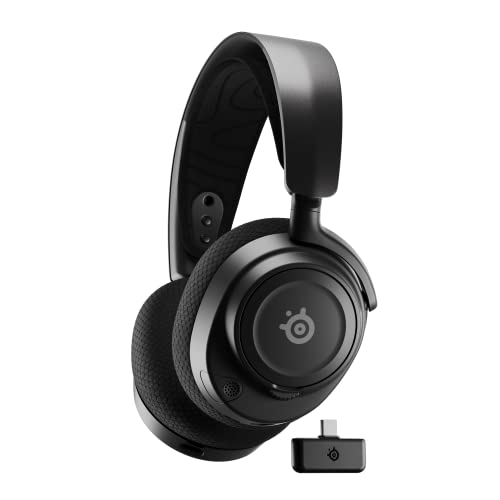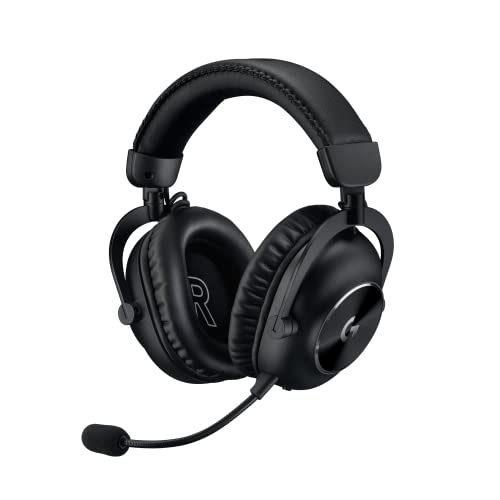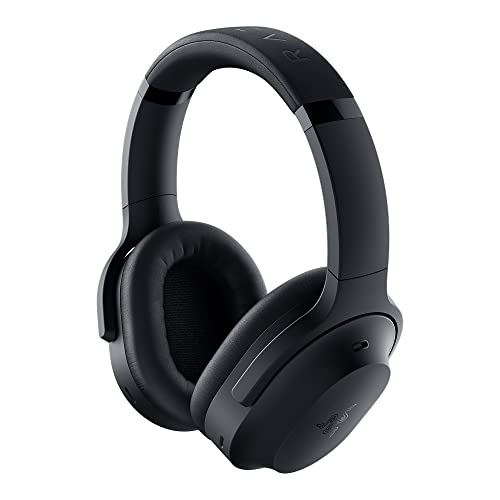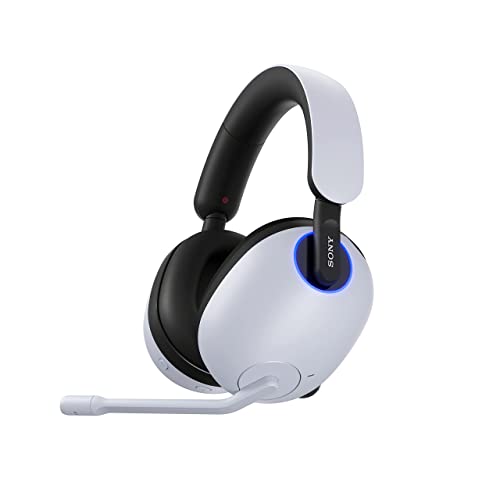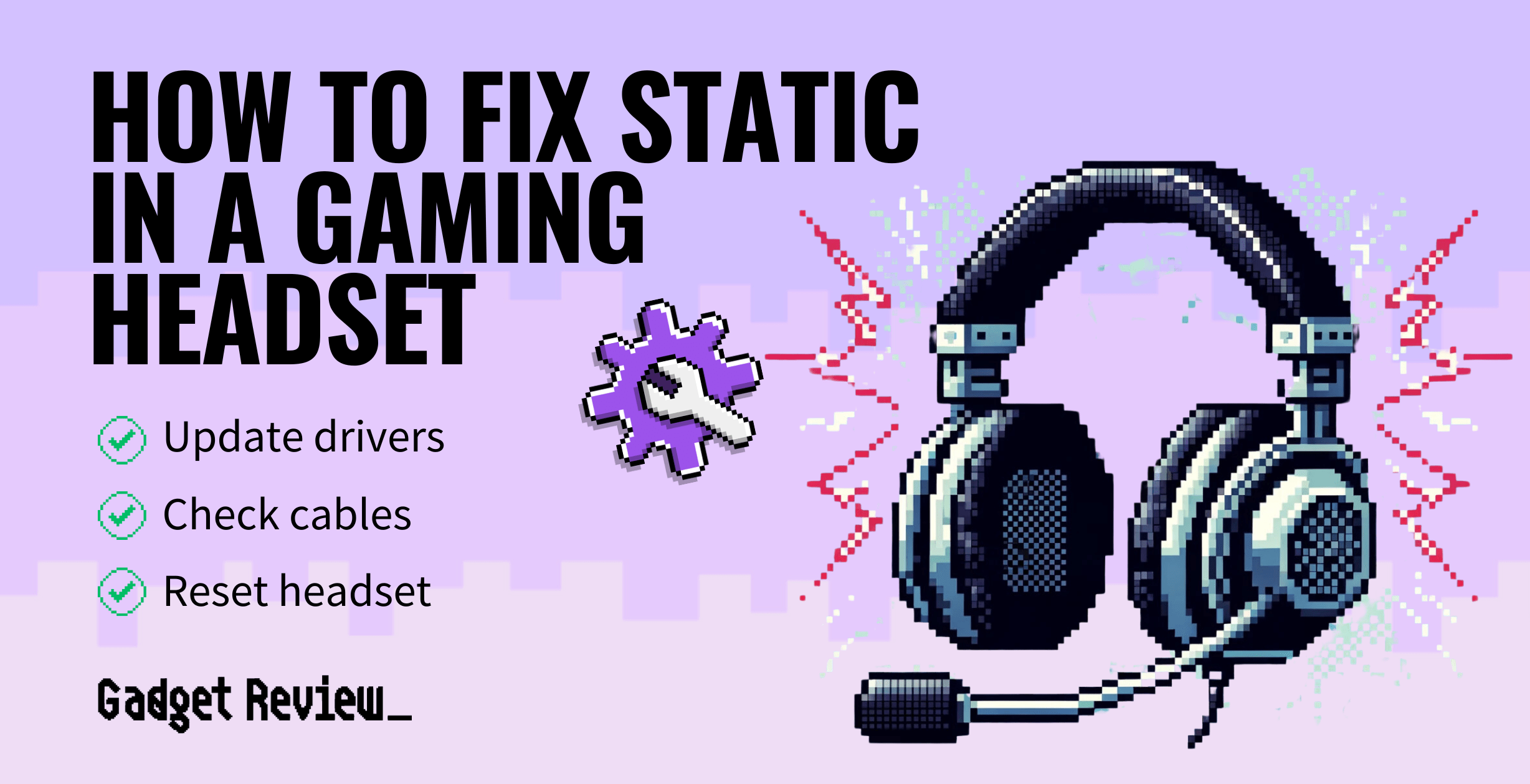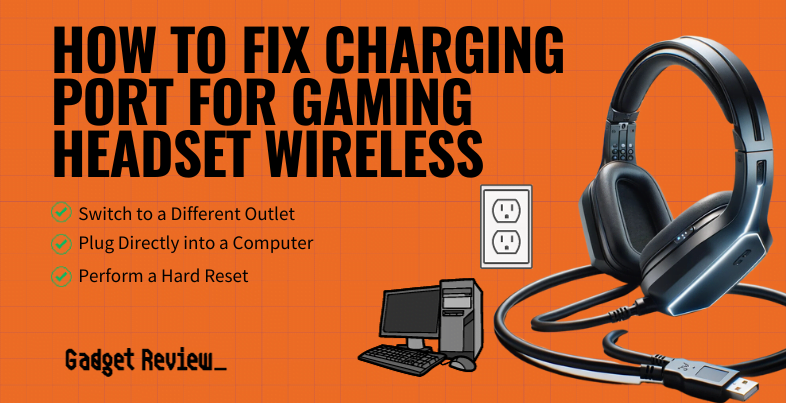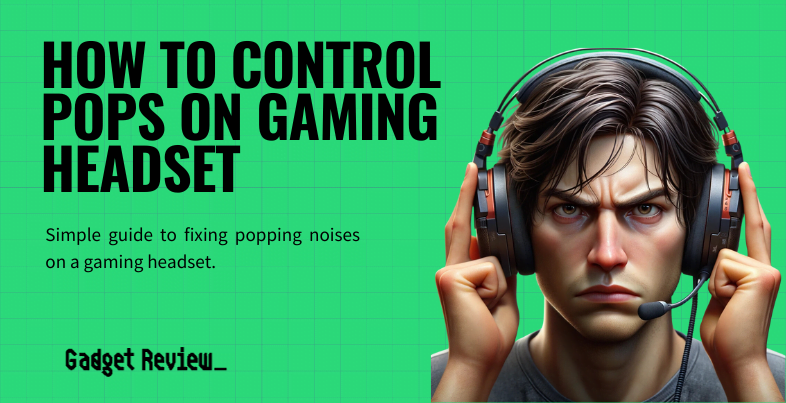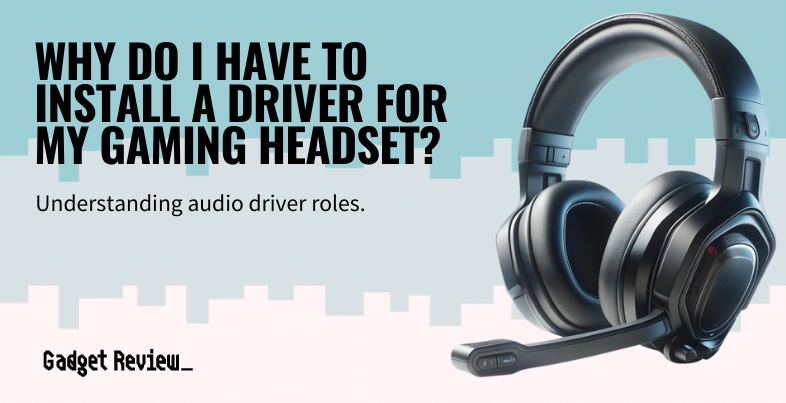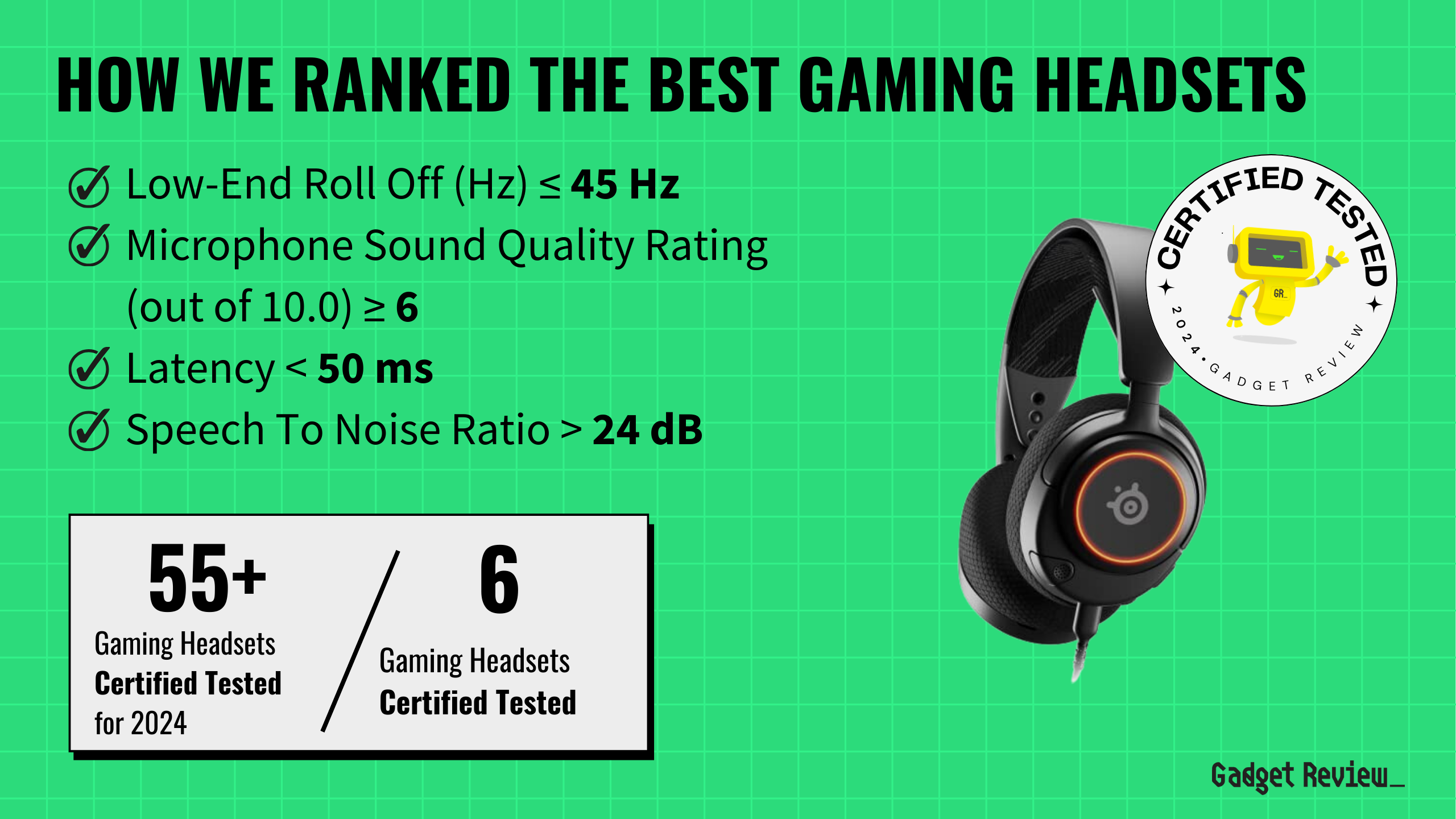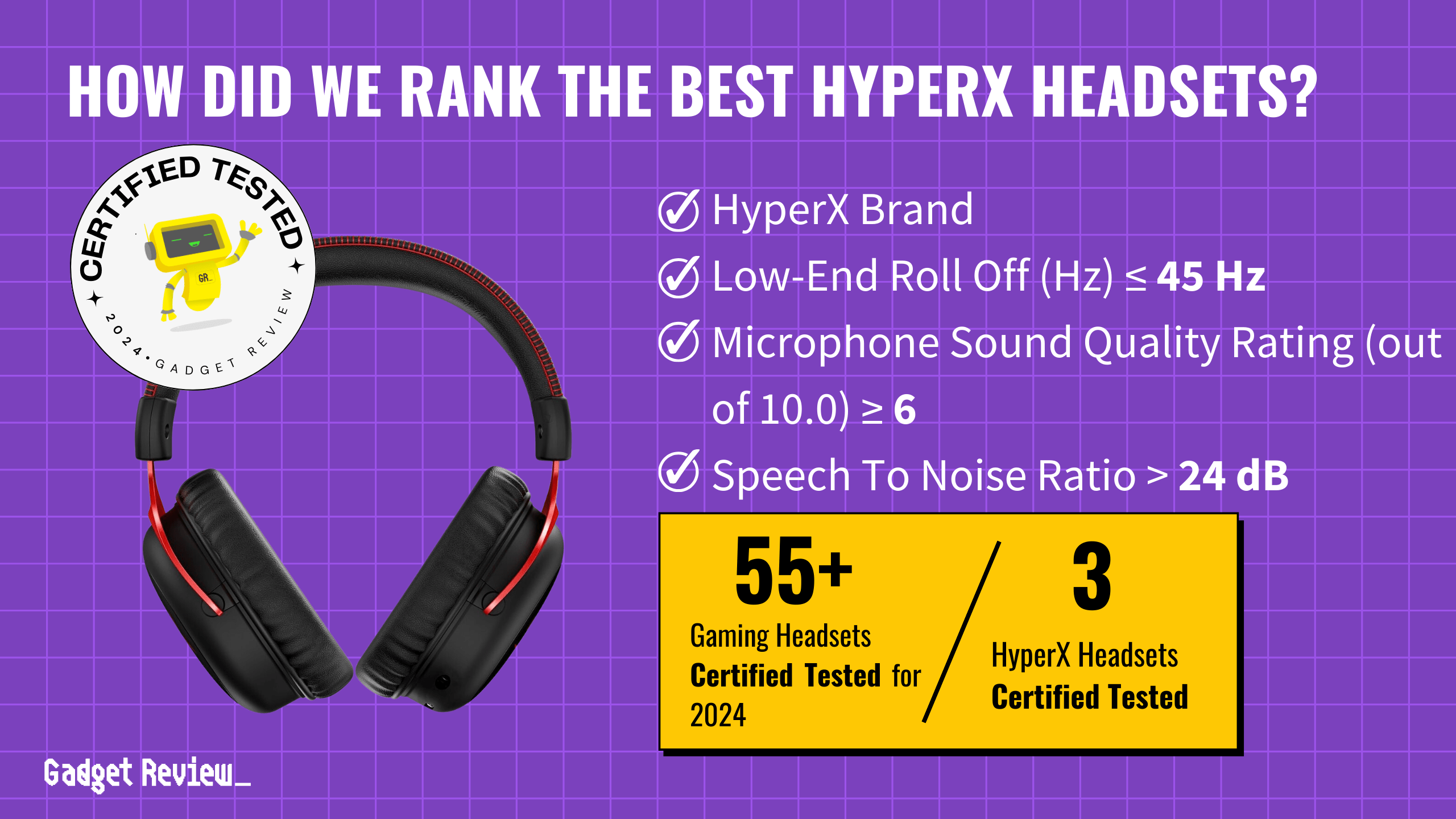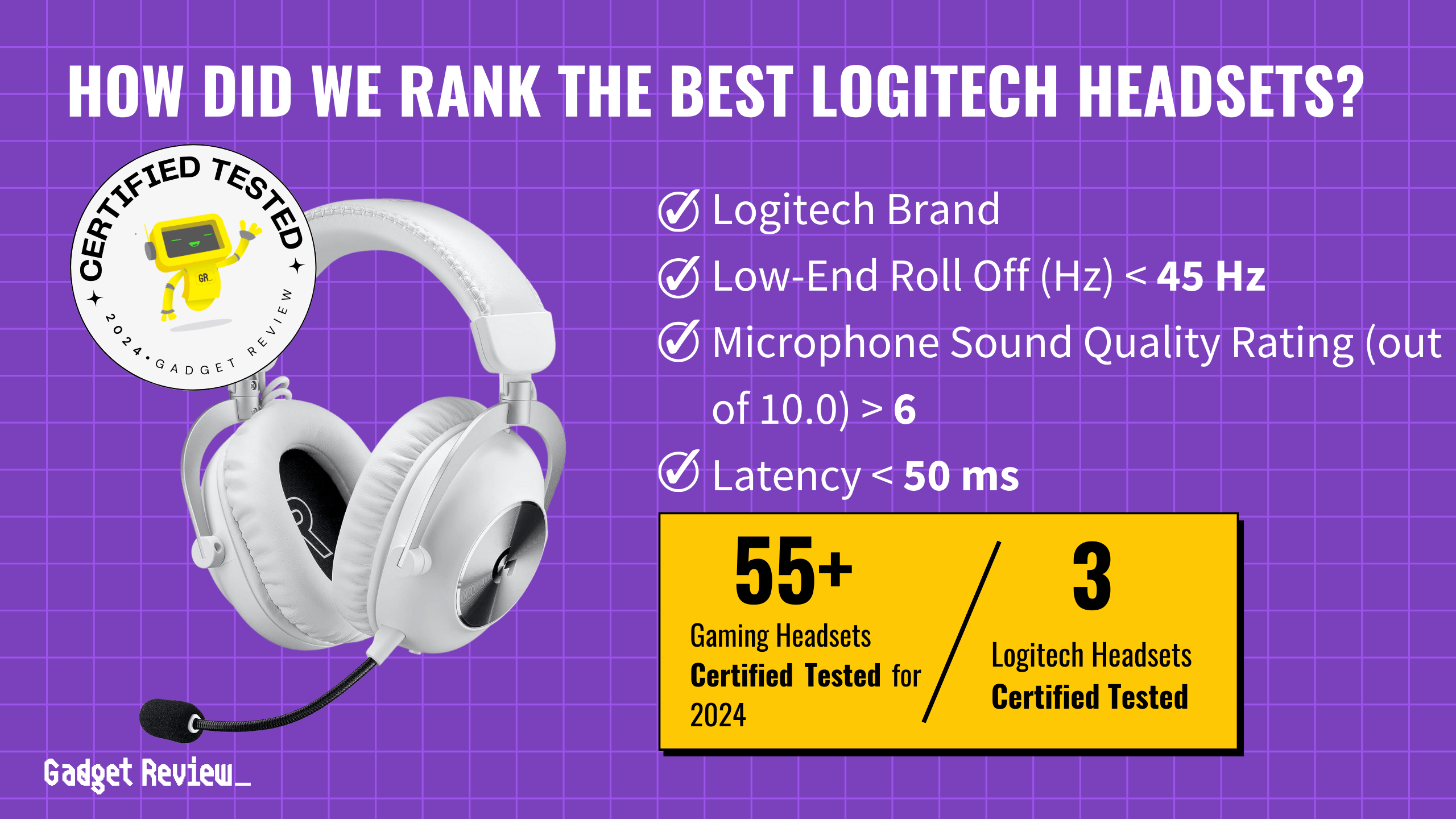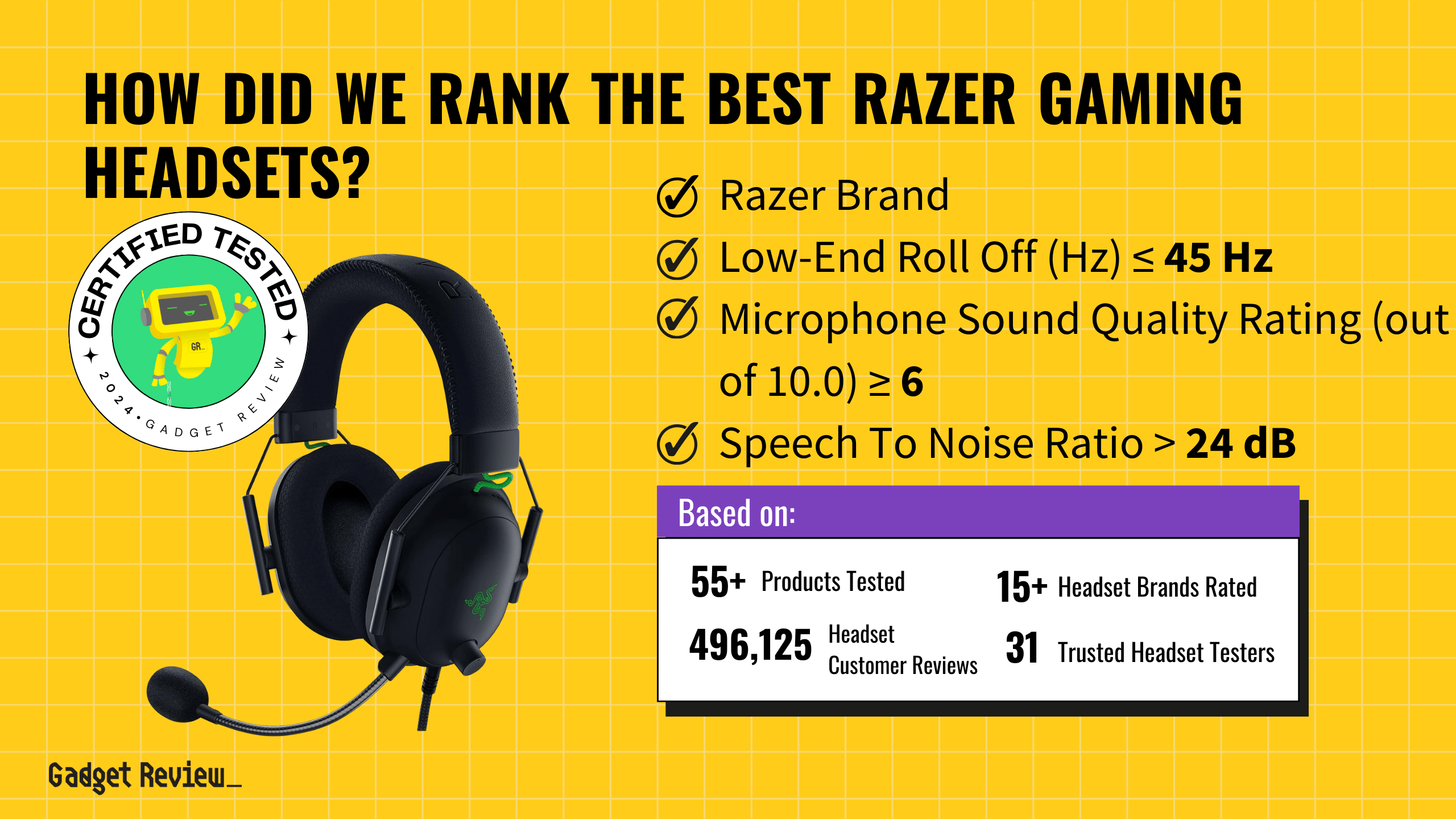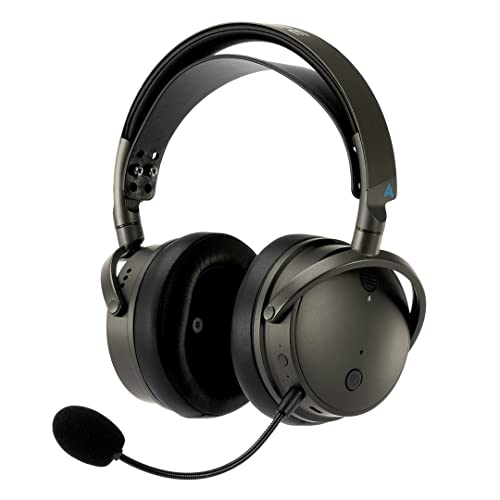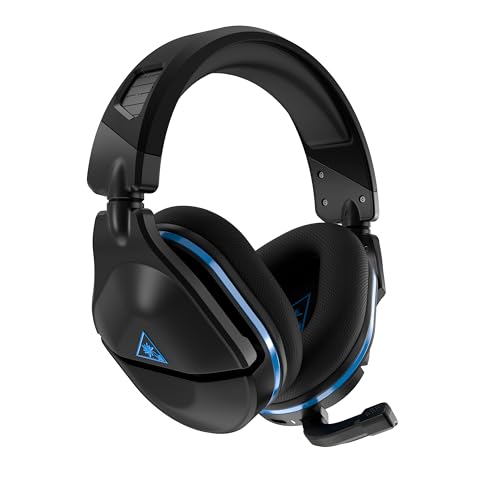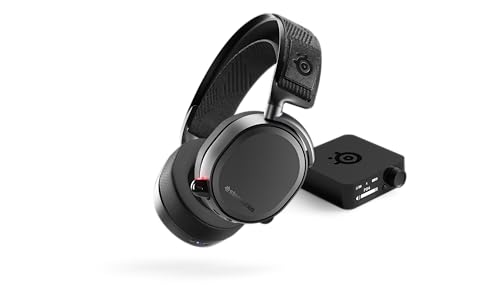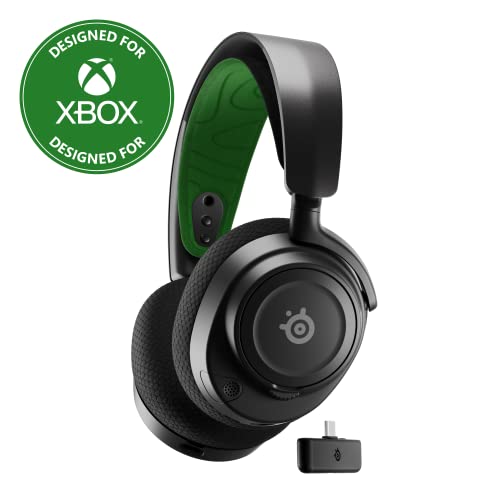In our effort to create the best headphones for VR buying guide, we cut through the clutter of fake reviews and insufficient expert analysis by digging into data and real-world testing. We scrutinized 503,437 reviews (customer & expert) from 57 gaming headsets, evaluating essential performance aspects like low-end roll-off and Microphone sound quality. Our research revealed that 72% of experts fall short in their testing, but we’ve identified the credible few. This meticulous process has allowed us to curate a list of 5 top-performing headphones for VR, giving you the confidence to make an informed decision based on reliable test data and genuine insights.
Below is our list of the 5 best headphones for VR. Additionally, our guide to the best gaming headsets has models designed to deliver exceptional audio immersion, whether for VR or traditional gaming.


TL;DR
When you shop through our links, you’re backing our mission.
How Did We Rank the Best Headphones for VR?
To set us apart from any other site on the planet, we’ve redefined how we create gaming headset buying guides. Our unique approach leverages a comprehensive dataset from 200+ trusted sites, focusing on key testing metrics (2 required, 2 nice to have) to rank the top-rated gaming headsets and ensure our recommendations meet your specific needs. Our commitment to unbiased reviews is powered by our ‘True Score’ system, targeting low quality and fake reviews. When you shop through our links, you’re backing our mission. Dive deeper to see how.
? Test Criteria
- Low-End Roll-Off: A low-frequency roll-off below 45 Hz ensures the presence of subtle rumble in the bass, enhancing the immersive quality of your gaming or music experience.
- Microphone Sound Quality Rating: The microphone on the headset must meet or exceed a subjective evaluation rating of 6 in terms of sound quality.
? “Nice To Haves”
- Speech To Noise Ratio: A minimum of 24 dB speech-to-noise ratio to ensure speech clarity by effectively minimizing background noise.
- Latency: The lag time between the headset receiving a Bluetooth signal and interpreting it for output through the speakers is less than 50 milliseconds.
Latest Updates
- 05/07/2024: Republished the list to include the best headphones for VR based on our True Score system.
Top Headphones for VR For 2025
Prices accurate at the time of publishing

Our Approach to Evaluating the Best Headphones for VR
We’ve redefined gaming headset guides, setting us apart from any other site on the planet. Our unique approach uses a comprehensive dataset from trusted sites, focusing on key testing metrics like low end roll off, speech to noise ratio, latency and microphone sound rating.
We aggregate and analyze this data, ensuring our recommendations meet the specific needs. Specifically, when it comes to headphones for VR, this involves selecting models that have a low end roll off of more than 45hz. Discover our data-driven methodology for precise, reliable gaming headset recommendations.
Which Criteria Matters for Testing Best Headphones for VR?
By focusing on these criteria (2 required, 2 nice to have), anyone can quickly and easily compare these gaming headsets and how they’ll perform. This helps you make an informed decision and purchase a gaming headset that meets your needs.
| CRITERIA | RANGE | REQUIRED | DEFINITION |
|---|---|---|---|
| Low End Roll Off (Hz) | < 45 Hz | Yes | The point at which bass response starts to fall sharply, causing it to rapidly become inaudible. |
| Microphone Sound Quality Rating | > 6 | Yes | A subjective measure of how good the microphone on a headset sounds. |
| Speech to Noise Ratio (dB) | > 24 dB | No (Nice to have) | How effectively the headset’s microphone isolates the user’s voice in a noisy environment. |
| BT Latency | < 50 ms | No (Nice to have) | The amount of lag time that exists between the headset receiving a Bluetooth signal and interpreting it to output it through the speakers. |
Our Trusted Data Sources
We looked at 110+ gaming headset reviewers and found that 31 are trustworthy (60%+ Trust Rating). The three we have listed below are our most trusted for computer monitors.
- Theresa Ketterling – Rtings, MuckRack
- Reece Bithrey – Trusted Reviews, MuckRack
- Andrei Frumusanu – AnandTech, MuckRack
Interested in a comprehensive analysis of our data sources? We’ve got you covered. Below, you’ll find a detailed list of every gaming headset review website we’ve identified, organized by their respective Trust Ratings from highest to lowest. But we didn’t stop there. We’ve meticulously reviewed each publication and verified the data by checking whether the authors have bio links to MuckRack or LinkedIn. We’re committed to not only checking the facts but ensuring their veracity.
Gaming Headset Test Data & Results
1. Low End Roll Off (Hz) Test Results
Deep bass is essential for an immersive gaming experience, and adds punch to common sounds, like gunfire and explosions. Low-end roll off is one of the major factors that helps determine how punchy this bass will sound. If the bass begins to roll off (or fade) too early in the audio spectrum, the result is a less impactful sound, which flattens out music and robs much of the sound you hear in game of depth and rumble.
Ideally, a gaming headset should maintain a robust bass response without significant drop-off at least down to 45 Hz, ensuring the bass feels full and present. Some headsets are capable of managing roll-offs that start in the low 20s or even the teens, which commonly indicates that the bass will be especially strong. Looking for roll offs that start in the low teens or single digits is unnecessary, however. Not only do these headsets not really exist, once you’re under 20 Hz, sound stops being audible, though you can still “feel” these frequencies in some cases.
Low End Roll Off
< 45 Hz
Acceptable range of performance
Definition: The point at which response from the headphones starts to rapidly fall away from the target response in the bass end of the spectrum.
Units of Measurement: Hz (Hertz)
Tools to Measure: Frequency response software
Why It’s Important:
Roll off that starts later often indicates that a headset is able to produce deeper bass and still have it be audible, so if you love bass, you want the roll off to start later.
Low End Roll Off (in Hz; lower is better)
2. Microphone Sound Quality Rating (out of 10.0) Test Results
Microphone Sound Quality
> 6
Acceptable range of performance
Definition: The subjective recording quality of a microphone.
Units of Measurement: N/A
Tools to Measure: N/A
Why It’s Important:
If you use your headset to communicate often, be it in games or just chatting, you want it to make you as clear as possible, so people actually understand what you’re saying.
This is a strange test because it relies on subjective input. In this case, we derived this rating from the testing data provided by RTings and Soundguys, who subjectively rate microphone quality, and have their readers subjectively rate it, respectively. From there, we can average out the ratings and create an overall idea of how good a microphone sounds.
Generally speaking, you want this to be higher than 6.0, as it means you’ll have acceptable sound quality when communicating. There’s no upper limit to sound quality – if you can find a headset that has a 10/10 and suits you and your budget, go for it. Low sound quality mics, however, will distort or blow out your voice, and that will make you hard to hear and understand.
Microphone Sound Quality Rating (higher is better)
3. Speech To Noise Ratio (dB) Test Results
Speech to noise ratio is a bit complex. In the simplest terms, it’s how you measure how good of a job a microphone is going to do with transmitting your voice in a noisy environment without also transmitting all of the background noise.
You’ll want a mic that has a speech to noise ratio greater than 24 dB. By looking for microphones that hit at least this ratio, you’re in a much better position to use your microphone in noisier environments without having to worry about tons of background noise filtering in. If the ratio is too low, expect to transmit dogs barking, air conditioners and fans, and people talking in the background every time you start talking – and if it’s bad enough, even when you’re not.
Speech To Noise Ratio (dB)
> 24 dB
Acceptable range of performance
Definition: How well the microphone does at preventing noise that isn’t you talking directly into the mic from being transmitted.
Units of Measurement: dB
Tools to Measure: Dummy head, test microphone, speaker
Why It’s Important:
A higher speech-to-noise ratio ensures your voice is clear over ambient noise, which is essential for effective communication in noisy environments during gaming.
Speech To Noise Ratio (in dB; higher is better)
4. BT Latency (ms) Test Results
BT Latency (ms)
< 50 ms
Acceptable range of performance
Definition: The amount of time it takes for a headset to interpret and process Bluetooth signals to play them back over their speakers.
Units of Measurement: Milliseconds (ms)
Tools to Measure: Timer
Why It’s Important:
Latency introduced by Bluetooth in audio can cause mismatches between what you see and what you hear, which is frustrating and can ruin videos and games.
Many gaming headsets feature Bluetooth, which means that you have to deal with Bluetooth latency if you’re using that to connect to a console or to a computer. This latency can create issues if the delay between what is being processed over the Bluetooth frequency doesn’t align with what is being shown on screen, which leads to frustration during gameplay and mismatches in visuals and dialogue when watching videos.
That’s why we recommend a delay under 50 ms, in order to reduce the perceived delay between what you see and what you hear. Lower is, of course, always better, as it further tightens up the gap between visuals and sound. If a headset you like has a very high delay, however, you’re going to notice it. You can compensate for this by using a non-Bluetooth connection standard or by using a wired connection instead, but non-Bluetooth standards require their own dongle, and a wired connection might create unacceptable restrictions in movement around your computer.
BT Latency (in ms; lower is better)
Best Headphones for VR: Mistakes To Avoid
- Disregarding Comfort: Comfort is paramount for extended VR sessions. Avoid headphones that are heavy, uncomfortable, or have poorly padded ear cups, as they can cause discomfort and distract from the experience. If your current headphones are uncomfortable and you don’t want to get a new pair, you can try making the headset more comfortable.
- Neglecting Immersion: Opt for headphones with immersive sound quality to enhance the VR experience. Avoid models with weak bass or poor soundstage, as they can diminish immersion.
- Ignoring Cable Management: Wireless headphones are preferable for VR to avoid cable tangling and interference with VR headset cables. If using wired headphones, ensure they have a manageable cable length and consider cable management solutions.
- Underestimating Durability: VR can involve physical movement, so headphones should be durable enough to withstand occasional bumps or drops. Avoid fragile or poorly constructed models that may break easily. To further protect your investment and keep your space organized, consider using a great headset stand to securely store your headphones when not in use.
The Best Headphones for VR Tests Compared
Product |
True Score
|
Max Vol
|
Mic Quality
|
Speech To Noise
|
BT Latency
|
Non-BT Latency
|
Low-End Roll Off
| |
|---|---|---|---|---|---|---|---|---|
Steelseries Arctis Nova Pro Wireless For Xbox
| 83 |
|
|
|
|
|
| $202.02 $350 $148 |
| 82 |
|
|
|
|
|
| $152.99 $180 $27 |
Logitech G Pro X 2 Lightspeed Wireless
| 82 |
|
|
|
|
|
| $193.50 $250 $56 |
| 79 |
|
|
|
|
|
| $199.99 $250 $50 |
| 78 |
|
|
|
|
|
| $298.00 |

